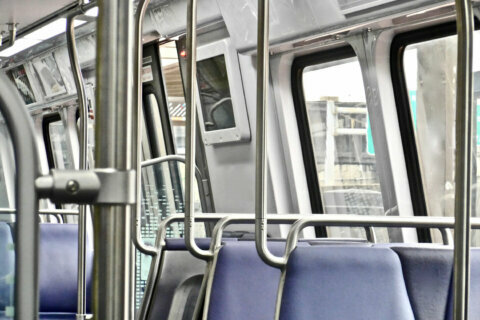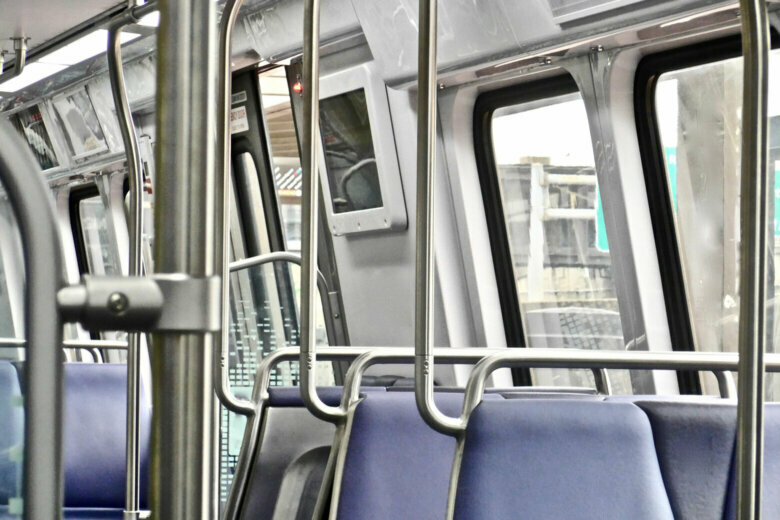
Normally, the Metro Board’s unanimous approval of the first rush-hour fare increases in three years, the restoration of some rail service hours and a number of other service cuts or additions would be a huge deal.
This year though, even the eight members who voted for the transit system’s budget plan have no idea if any of those items approved Thursday will actually happen when the budget year begins July 1.
The 8-0 vote instead amounts to a ceremonial budget approval that allows federal grant applications to move forward, buying the Metro Board, Metro staff and the local governments that foot the bill more time to figure out what should actually happen this summer given major coronavirus pressures in the D.C., Maryland and Virginia regions.
“Right now, it’s impossible to say what may or may not be cut or not cut,” Metro Board Chairman Paul Smedberg said.
Metro would not need another round of public hearings, if major changes are limited to those discussed this winter.
“There’s still a lot that has to be answered yet for us before we can even determine how we’re going to proceed,” Smedberg said.
Metro is losing $2.5 million each weekday, already counting $67 million in losses due to COVID-19, General Manager Paul Wiedefeld said.
- Sign up for news alerts from WTOP
- What would it take for Metro to shut down?
- Despite grim predictions, Trump resists national stay-home order
- Express Lanes traffic falls in coronavirus era
- Print this out so you don’t bring coronavirus home
- Coronavirus test results in D.C., Maryland and Virginia
- Coronavirus FAQ: What you need to know
Metro has already closed 19 rail stations indefinitely, significantly reduced train frequencies, cut rail service hours back to 11 p.m. closings each night and slashed bus service until further notice. Additional service reductions are possible.
The newly approved budget package would have extended rail service hours back to midnight on weekends, and until 2 a.m. Friday and Saturday nights. It would raise rush hour rail fares between 10 and 50 cents depending on the length of your trip, and cut weekend rail fares to a flat rate of $2.
The plan includes a number of bus service cuts, although far fewer than Metro initially proposed in December and January. Some other bus lines would see improved service.
With the situation still changing, Wiedefeld says it is too early to even say one or two things that might be cut from the just-approved budget plan.
“When we get toward June, obviously we’ll have much more information, we’ll all have a better sense of where we are and what the future looks like – the near future anyway – and I think we’ll make our judgement then, but it would not be until June before we’d even get to that level [of detail],” Wiedefeld said.
The board plans to vote in June on an actual final budget, and then may still make further changes every few months during the budget year.
Local governments are responsible for Virginia’s operating costs, while the state pays most costs for Maryland’s Montgomery and Prince George’s counties.
Jurisdictions are already concerned about whether they will have the money to cover many things in their budgets, including Metro.
“We’re going to be working closely with our jurisdictional partners. They too are assessing, you know, where this is going,” Smedberg said.
State and local governments are in the process of their own significant overhauls to budgets that were initially proposed over the last few weeks or months.
“It’s sort of surreal even doing a budget in these sorts of times because there is pretty much unprecedented uncertainty out there on a lot of fronts,” Loudoun County Supervisor and Metro Board member Matt Letourneau said.
A change in the Virginia funding breakdown Thursday actually increased projected costs for some jurisdictions, as it lowered Loudoun County’s forecast contributions based on the expected launch of Silver Line service to Dulles International Airport and Ashburn next spring.
Letourneau acknowledged that is “causing a lot of heartburn” for other Northern Virginia governments.
How people will bounce back after all this is another big budget question.
“The world that we’re in right now is a little bit upside down, and I would also say that the world that we’re going to see afterwards has a lot of changing dynamics,” Maryland Transportation Secretary and Metro Board member Greg Slater said.
For example, it is unclear how quickly things might return to normal, how many businesses will reopen, and how many people will stick with telework on a regular basis.
“Even when we’re through the peak of this, we’re going to be dealing with a very different ridership scenario, probably very different revenue projections, and so I do think the board, as has been stated, will have to recalibrate to figure out what are the things that we’re going to have to do in that situation to get riders back and also to make budget,” Letourneau said.
Local governments that run their own bus systems, including Montgomery County (Ride On), are concerned about plans to double the transfer discount between buses and trains, since local bus systems have largely tried to match their fare rules to Metro’s, but they say they do not have additional money available to accommodate the increase from 50 cents to $1 without resorting to service cuts.
“We simply can’t fail to take account the impact that our actions will have on our regional partners, and so we must be prepared to take a hard look at our budget initiatives in light of COVID-19 in June,” Maryland Metro Board member Michael Goldman said.
The budget approval also covers capital construction, repair and purchasing projects.
Metro’s plans include more 24/7 track work, the next steps to buy a new batch of train cars, more new buses, and garage, office and IT upgrades or replacements.
For now, Metro is not speeding up any significant track work during the current cuts in service and ridership.
“We are looking at opportunities across the whole capital program, where there are opportunities to move up projects, but we are doing that from the perspective first and foremost is are we putting our employees or the contractors in any danger from a health perspective,” Wiedefeld said Thursday.
Metro is wary of ramping up service or financial capacity to get previously planned projects going only to see a ban on construction implemented at the state, regional or federal level.
Longer term, Wiedefeld is hopeful that any additional rounds of stimulus funding from the federal government could include a focus on infrastructure projects, which could allow Metro to speed up or expand on current plans.
Metro has yet to actually receive the emergency federal operating assistance signed into law last week, with final conversations continuing with the Federal Transit Administration about exactly how the funding will be distributed and what if any strings will be attached.








